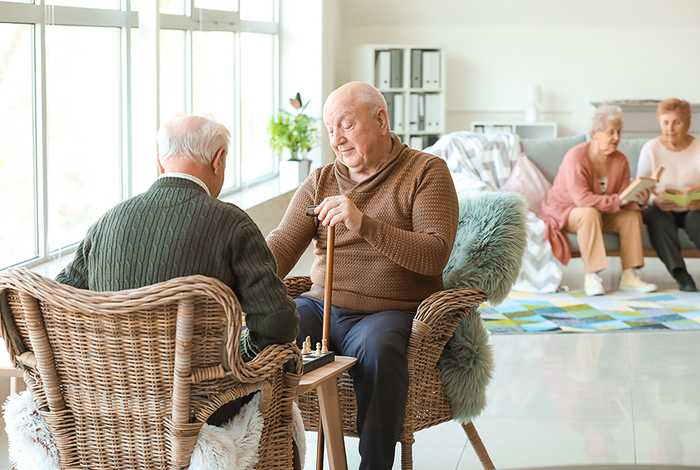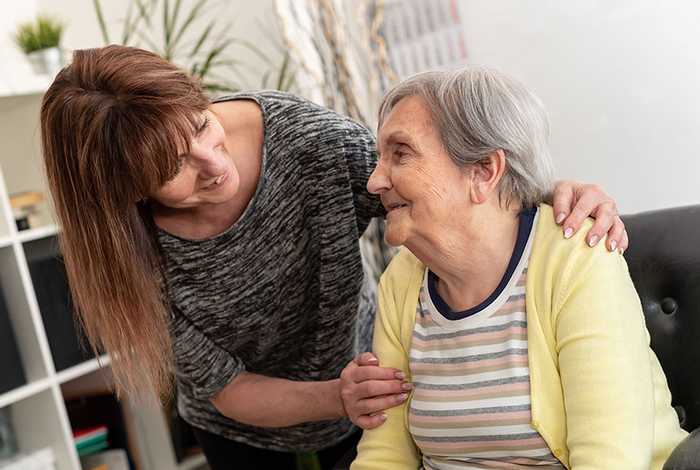Posted by Annie Button
World Alzheimer’s Month: Making the internet safer and more accessible to seniors
Perhaps the most concerning thing as the digital revolution continues rumbling on is the lack of support for elderly internet users.
As September is World Alzheimer’s Month, we are looking closely at how best to safeguard senior internet users. It is estimated there are currently 900,000 people with dementia in the UK, with figures expected to rise sharply in the coming years.
When diagnosed with dementia the need for further support increases, with the main priority being the protection of their online identity. With a sizable 25% of people aged 65 and over unable to use the internet, that is a significant amount of people missing out on key services such as banking, shopping and health.
From a lack of trust in the internet to not having enough access to digital devices to hone their skills, more must be done to support our older generation discover the benefits of modern technology and use it safely.
How to protect seniors on the internet
Online tools for people with dementia can help keep their mind active and healthy. These tools include games, puzzles, colouring and even YouTube videos but they may require some basic setup, such as email addresses, passwords, etc.
When you consider that many people of average age can fall for an online scam, it’s little wonder that those less well-versed in the dangers of the internet are more vulnerable. From catfishing on dating sites to scam emails and fake websites, there are many ways for hackers and scammers to take advantage of elderly people.
Email scams
Email scams are out to deceive from the get-go. They commonly arrive in someone’s email inbox from what appears to be a legitimate source, for example, Amazon. But, the email address is typically spelt slightly incorrectly, features superfluous characters or is from an address such as shi.pping@companyXYZ. These can appear genuine and feature links or files that are harmful to your computer.
How to deal with email scams:
● Delete them immediately
● If the email claims to be from a legitimate source, find their contact information on their website and get in touch to investigate whether it is from them or not
● Instruct your senior relative to only open emails from trusted contacts – consider adding a ‘T’ next to these people in their contacts list to indicate 'Trusted'
Viruses
Viruses are maliciously created to infect computer systems and spread harmful malware or ransomware programs that aim to crack passwords and cause disruption to the user. The ultimate goal is to disrupt business operations, or in the case of ransomware, hold valuable information hostage until a fee is paid. In the case of a care or retirement home, this presents a danger to the organisation – particularly if the home is part of a wider group.
Residential homes for the elderly may find themselves the target of virus attacks as they may have vulnerable users. To protect the data of its residents a care home can arrange for a specialist security test which aims to identify and remedy any vulnerabilities in a computer network or system. And, one of the best ways to ensure personal data is protected is to always update devices to the latest version; these updates are commonly done to shore up any vulnerabilities.
Social media
Social media is a great way for us all to connect but it is also home to dishonest people who may not be who they seem. Whether it’s a lonely elderly person seeking a new connection or simply an unsolicited ‘friend request’, ensure that strangers on the internet are vetted. One positive of social media such as Facebook is its Messenger application, which is a third-party program, ensuring that other users don’t have direct access to your email address.
Steps for caregivers to protect senior loved ones
To help the elderly person in your life browse the internet safely and securely it’s important to pass on useful practices and tips to them
● Start by keeping them informed about the various ways they can be scammed on the internet. Of course, there are many ways this can occur but regular reminders and potentially blocking harmful websites can go a long way to preventing these scams from occurring.
● Keep an eye on their financial accounts for any unusual activity, from irregular purchases to changing service providers – these may be signs that their account is compromised, either voluntarily (but unbeknown to them) or surreptitiously.
● While in conversation listen out for any details that might be a red flag, such as finding a great deal on their holiday, cheaper deals on bills or any impulse purchases they made.
How can you protect devices used by seniors?
You can help seniors enjoy safe internet browsing and usage by ensuring that their devices are given the latest software updates and antivirus protection. These protective programs can offer security against many modern viruses but they often aren’t enough on their own.
It’s also important to show seniors what scams they may be vulnerable to, and there are a host of computer classes for seniors that can teach the basics in a short timeframe.
Where shared devices are used, passwords must be kept secure, strong and protected. In the case of someone with early dementia, this may mean writing a password down on some paper, so it must be given to someone trustworthy to ensure they can protect it for the elderly person. If the device allows it, a better way to access it is through fingerprint recognition, which reduces the need for password recall to virtually nothing.
What are the best ways to communicate with people with dementia online?
There is no reason why the internet must be cut off to the older generations, they may just need some extra help and orienteering to get up to speed. It’s also a great way for families to remain in contact with their relatives diagnosed with Alzheimer’s.
Email is a powerful connection tool that can be stored electronically, offering great recall opportunities for people to stay on top of the conversation. It’s instant, ensuring that communication is fast and that your loved one isn’t waiting around for days or weeks for a response to a letter.
Video calling is another advancement that is bringing people closer together. It’s great for people in care whose relatives live far away and cannot make regular visits. Video calling puts a real face in the conversation and it has the added feature of helping with sign language to remove a barrier to communication.
As advances in digitisation continue at a pace, the healthcare system does well to embrace technology. As software upgrades continue to roll out across private and public healthcare providers, improving the quality of people receiving help and support, it is important that data protection is prioirtised and that the benefits of technology are accessible to every member of the public, from the elderly and to the more vulnerable people in our care.
What is the best way to research information about care and support in retirement?
Growing numbers of people are turning to Autumna for support and information when they want to find out more about their care home, home care and retirement living options.
Let Autumna help you. Why not complete this short form to let us know exactly what type of care is important to you? We’ll then use our database of over 26,000 care providers to filter your search and send you a shortlist of those that can help.
Alternatively email us here: info@autumna.co.uk or call our Advice Line on 01892 335 330. Our phone line is open seven days a week. (8:30am - 5:30pm Mon-Fri, 10am - 5pm Sat, 10am - 4pm Sun).
Other articles to read
Autumna Blog

Older Persons Care Advice
Care options for the elderly: What is right for you?
October 17th, 2025
Discover care options for the elderly that fit your needs, from home support to residential care, helping you plan confidently for the years ahead.

Older Persons Care Advice
Are next of kin responsible for care home fees
October 17th, 2025
Find out the truth about care costs. Are next of kin responsible for paying care home fees? Learn who pays, exceptions, and how to plan ahead.

Older Persons Care Advice
How to find a live in carer
October 15th, 2025
Discover how to find a live in carer who’s skilled, trustworthy and compatible, with practical tips on choosing the right support for your needs.






